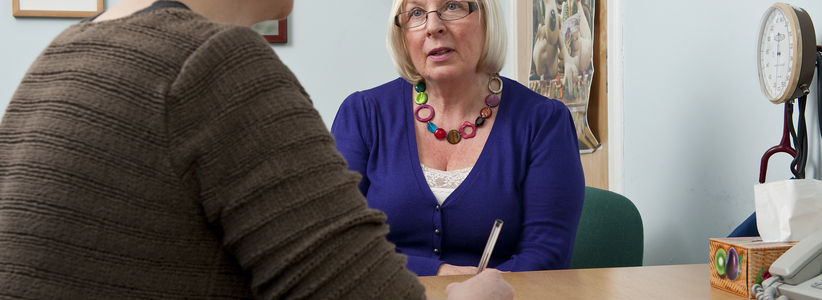Research Nurse committed to engaging general practices in new trials for ‘tomorrow’s medicine’

A Lead Research Nurse for NHS Research Scotland (NRS) is undertaking unique general practice engagement work aimed at ‘not just caring for patients today, but for tomorrow as well’
Andrew Deans joined the NRS Primary Care Team in September last year and is already making significant strides in encouraging primary care staff and patients to get involved in key research.
Based in, and part-funded by NHS Lothian, he has a remit to co-ordinate and facilitate research in primary care locations across the region and says discussions around practices participating in new trials have been “really well received by GPs”.
Andrew is now looking forward to kickstarting a series of studies in general practices and supporting those that are interested in undertaking research, allowing equity of access to research for patients.
Providing access to, and benefits from, health and care research in the wider population is considered vital, particularly in helping to reach diverse communities. The NRS Primary Care network, funded by the Chief Scientist Office (CSO) of Scottish Government, helps to support research activity in primary care settings across Scotland.
Expanding this work and providing targeted support to GPs has several benefits – increasing capacity to undertake research, allowing GPs and practices to enhance their research experience, offering opportunities for patients to participate, whilst improving awareness of it.
He said: “Research doesn’t just take place in hospitals, so raising the profile of, and expanding research in, primary care settings is really important. It also offers hope to patients so it’s not just caring for them today, but for tomorrow as well. It’s a glimpse of tomorrow’s medicine and they can immediately see the benefits.
“Through this work, we expect to soon have patients recruited to a long COVID study. It’s an exciting time as so far there’s no specific treatment available for people with the condition except support and self-help groups.
“We’re also planning an asthma study. It’s a common lung condition which can be serious and one that remains challenging across the UK, and still results in deaths which can be prevented if treated appropriately. We plan to look at people who are at the greatest risk and will be trialling a different way of using current inhalers.
“Another trial will focus on promoting bitesize physical activity such as a quick walk or simply a few steps in the kitchen while you’re boiling the kettle – in other words, activity that we could all be doing each week.”
Snacktivity™ is a research programme running across the UK. It encourages short 'snacks' of physical activity throughout the day, with each lasting between 2-5 minutes and easily fitting into daily life, such as using the stairs instead of a lift, taking an extra short walk, or doing leg raises while watching television. These small efforts accumulate to help prevent future risk of disease in the population.
Andrew added: “As a national network, we are always looking at ways in which we can increase opportunities for patients to take part in research. Understanding the local community and working closely with GPs is central to this. Alongside other colleagues, such as those working with communities in NHS Highland, I’m hopeful we can further expand this activity.”
Andrew has a wealth of clinical research experience spanning over 20 years across a variety of settings, including Phase 1 clinical trials.
He has set up and coordinated over 40 commercial and academically sponsored clinical trials within respiratory medicine in both acute and primary care settings. He has also assisted specialist registrars with their MD’s and worked with a number of PhD students.
Andrew is a member of a Cross-Party Group at the Scottish Parliament: Rare, Genetic and Undiagnosed Conditions. He is also a member of The British Association for the Study of the Liver Special Interest Group in Rare Disease.
Publication date: 26th August 2024

